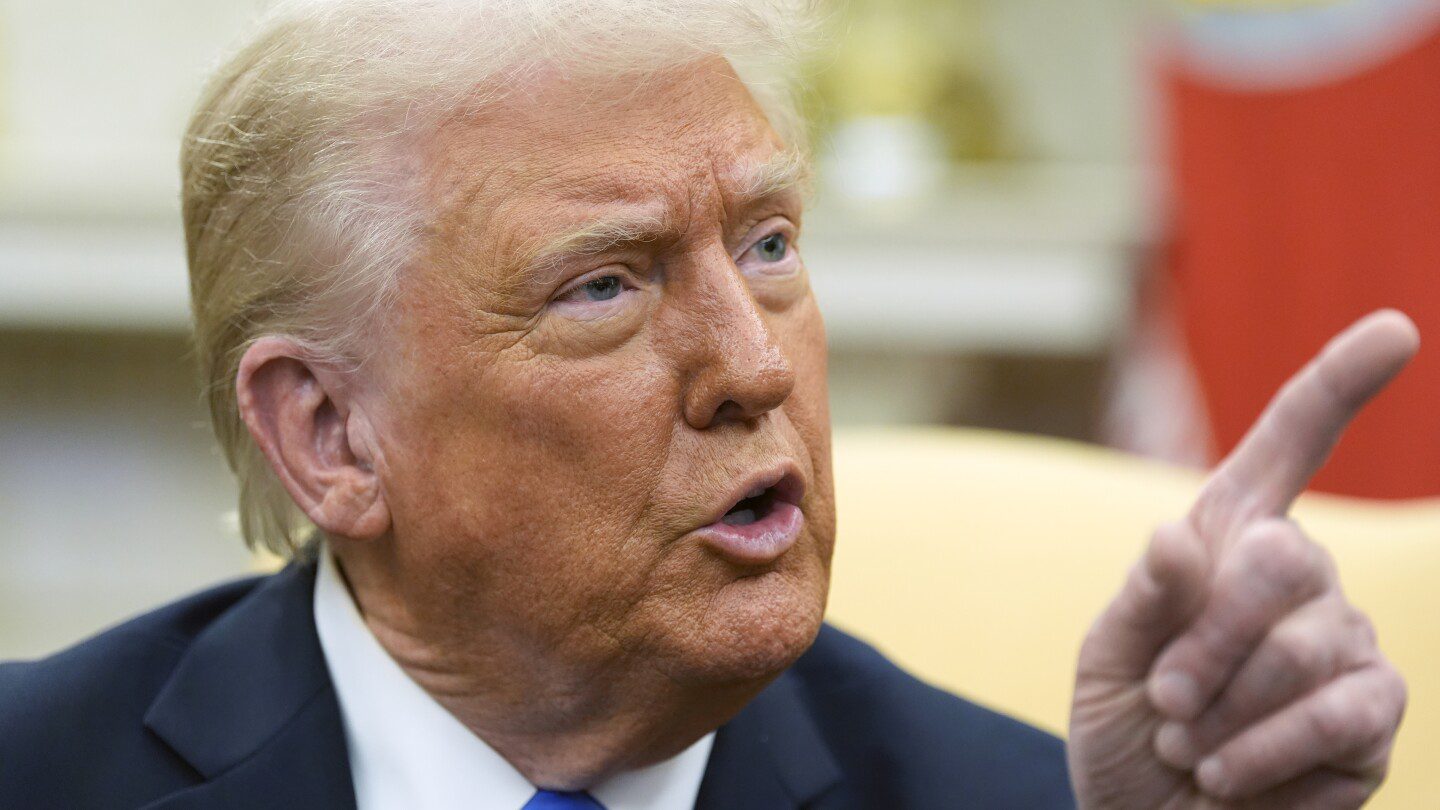
LOS ANGELES (AP) — President Donald Trump’s commitment to advancing artificial intelligence (AI) research in the United States is being met with challenges due to his recent threats to modify federal contracts with semiconductor manufacturers and introduce new tariffs on the chip sector. These actions may create obstacles for the tech industry.
Since he took office, Trump has proposed tariffs on imported computer chips and semiconductors with the aim of revitalizing domestic chip manufacturing. Alongside Republican lawmakers, he has also indicated a willingness to terminate the CHIPS and Science Act, a significant piece of legislation enacted during the Biden administration that aimed to enhance domestic production capabilities.
However, economic analysts caution that Trump’s dual strategy could hinder, or even harm, the goals of maintaining the U.S.’s competitive position in AI research.
Saikat Chaudhuri, a corporate growth and innovation expert at the Haas School of Business at U.C. Berkeley, expressed surprise at Trump’s criticism of the CHIPS Act, highlighting that one of the major roadblocks to AI advancement is chip production. He noted that many countries are actively promoting chip production and facilitating chip imports at competitive prices.
“The chip shortage has impacted everything from AI to the automotive industry,” Chaudhuri pointed out. “During the pandemic, car manufacturers had to rely on fewer or less powerful chips to manage supply shortages.”
The Biden administration supported the CHIPS Act in response to supply chain disruptions caused by the COVID-19 pandemic, which led to a significant chip shortage that halted factory production and contributed to rising inflation, entering the U.S. into a potential recession. Lawmakers were also motivated by concerns over China’s increasing influence in Taiwan, which is responsible for over 90% of advanced chip manufacturing.
By August 2024, the CHIPS and Science Act had allocated $30 billion to support 23 projects across 15 states, creating 115,000 jobs in manufacturing and construction, according to the Commerce Department. This investment aimed to attract private funding and enable the U.S. to produce 30% of the world’s most advanced chips, a notable increase from 0% when Biden assumed office.
The administration has pledged tens of billions of dollars to construct U.S. chip foundries and reduce dependence on Asian suppliers, a move viewed as crucial for national security. In August, the Commerce Department committed up to $6.6 billion to assist Taiwan Semiconductor Manufacturing Company (TSMC) in expanding its facilities in Arizona, ensuring that state-of-the-art microchips can be produced domestically for the first time.
Trump has argued that companies receiving federal contracts, such as TSMC, do not require financial aid to prioritize U.S. chip production, claiming they need incentives instead. He stated, “They won’t want to face tax rates of 25, 50, or even 100%.”
Last week, TSMC held board meetings in the U.S. for the first time. Trump has indicated that if companies wish to evade tariffs, they must establish plants in the U.S. without federal assistance. Taiwan has also sent two senior economic officials to Washington to negotiate against the 100% tariffs Trump has threatened on semiconductor imports.
If tariffs are imposed, Chaudhuri warns that prices for goods reliant on semiconductors, including smartphones and smart appliances, are likely to increase as manufacturers typically pass on higher costs to consumers. “Every modern device has chips,” he explained. “This could lead to significant discomfort for consumers.”
Even leading tech firms like Nvidia will ultimately be affected, despite their current ability to absorb costs. “No one will benefit from this expected outcome, except for countries that proactively promote their own strategies similar to the CHIPS Act,” he added.
Brett House, a professor at Columbia Business School, asserts that broad tariffs would severely impact the U.S. economy, increasing costs for households and businesses alike. According to him, for the AI industry, tariffs would substantially raise expenses for critical inputs, specifically high-powered chips sourced from overseas.
“If you undermine or threaten the CHIPS Act while simultaneously implementing widespread tariffs on AI and tech imports, you severely handicap the industry,” House concluded. “Such measures could stifle efforts to build a domestic chip manufacturing sector and deter future investments in the U.S.”
“Historically, American technological leadership has thrived on open global markets and the free flow of labor. Reducing this openness does not bode well for American success.”
___
This report includes contributions from Associated Press writers Josh Boak and Didi Tang in Washington.









